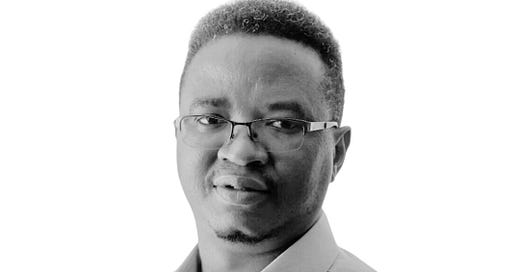Welcome to “Global Witness, Globally Reimagined,” where we dream about mission in a postcolonial world. Every Thursday, I share one thought that has spoken to me in the week, some resources that I trust will be helpful to you, and three exciting quotes about mission to give you something to think about. I pray one of these will energise you in the coming week.
1. Thought I Can’t Shake Off
I am back from Nairobi where I spoke at the African Society Evangelical Theology conference. Thank you to all who prayed for us. I definitely had a great time. Having a group of more than one hundred scholars and practitioners of mission gather to discuss missiology in African perspectives was such a heart-warming experience. The conversations gave me hope. Generally, in conferences like these, many presenters tend to compete on who can parrot Western voices the best. They want to show off how much (western) theology they have read. As such, I sought to use my keynote speech to shift the conversation and to create a space where we could “missiologise” as Africans, using African tools to answer African questions. I was keen to liberate the conversation from its own bias towards Western thought. [If I need to hear Western missiology, I go to British and Irish Association of Practical Theology or American Society of Missiology].
To a great extent, this happened naturally without needing a lot of effort.
Quite a few points from the keynote connected well with the people in attendance, both in person and online. A great deal of the keynote attempted to argue for the development of an African missiology because, of course, the world needs it. The limitations of Western missiology are too obvious—its colonial legacy and close identification with Western imperialism, [the Kikuyu (of Kenya) have a saying, “Gũtirĩ mũthũngũ na Mũbĩa,” translating, “there is no difference between a white (coloniser) and a preacher/priest/missionary”], its over-dependence on money and geography, its blindness to the missional potential of simple Christian migrants and, most important for us, its Enlightenment-shaped pneumatologically-malnourished theology.
This quote from Paul Pomerville drove the conversation for us:
The excessive impact of Western culture on the theology brought by the missionary to non-western cultures resulted in an extremely naturalistic, rationalistic, and abstract-oriented theological product being introduced into supernaturalistic, intuitive, and concrete-oriented societies … For it is precisely the absence or lack of the power of God as a reality people can live by that has been a precipitating factor to these movements. In African traditional religions, power is the centre of their thinking. And the spirit—of God, the gods, or the ancestors—was a tangible reality. How remote, how intellectual, how powerless seems to be the God and the Spirit the missionaries preach about or the Westerners show in their lives. As one leader once expressed it in a conversation with the missionary, “You have held back the Spirit!”1
The general consensus at the end was that, among many things, the first hallmark of African missiology will be its grounding in pneumatology. It will put into practice that which was said by the prophet John V. Taylor that the Holy Ghost is the chief agent of mission, something that I suspect is too otherworldly to most of my Western friends. If it does this well and manages to avoid the excesses such as we see with many African prophets of our era, it will be able to avoid the pitfalls of Western missiology.
2. Resources I am Enjoying
Podcast: Bridgetown Audio Podcast: Lamin Sanneh & Black History
In this fascinating episode of the Bridgetown Daily podcast, host Jarin Oda highlights the life and contributions of the late Professor of Missions and World Christianity, Lamin Sanneh, to global Christianity. As Oda rightly notes, Sanneh was always vocal about and ready to show that Christianity is a translatable faith and does not solely “belong in the halls of Western Eurocentric Protestantism,” since the West, like every other region, is a specific context of human culture. Perhaps the following thought from Sanneh, as spotlighted by Oda, and which I believe remains relevant for our missional endeavour today, sums up the astute scholar’s mind in all his works: “Christianity does not primarily depend on a fixed language or culture. It has no exclusive geographical frontier. It does come as a liberating message to every person and culture.”
3. Quotes I am Pondering
Crossing cultural frontiers is not only a prerequisite for the spread of the Christian movement; it is also the means whereby the worldwide community of faith increasingly experiences the fullness of the Gospel. — Jehu Hanciles
Mission is not just the Church’s activity in another culture local or abroad, but is a frontier of belief, conviction and commitment. — Philomena Njeri Mwaura
… authentic Christian ministry is an expression of Missio Dei utilizing human beings as visible agents. — Roy Musasiwa
I pray that you will be faithful in whatever God calls you to do this week.
Paul Pomerville, The Third Force in Missions, (Peabody, MA: Hendrickson Publishers, 1985), 74. (My emphasis).




The Holy Spirit is the Master Missiologist
1)
Do not quench the Spirit.
Do not despise prophecies,
but test everything;
hold fast what is good.
2)
Lecture on Enoch & The Watchers by Dr Michael Heiser
https://www.youtube.com/watch?v=W7i5nGBE6J8
3)
Dr. Amos Yong (Fuller Seminary) on Missional Theology: Holy Spirit, Hospitality and the Other
https://www.seminary.edu/news/northern-seminary-announces-summer-2024-teaching-and-course-line-up/
4)
Francis Benyah is a doctoral student at the Department for the Study of Religions, Åbo Akademi University, Turku, Finland.
OMSC@PTS Research Project Title: Mapping Cosmologies of Mental Health: A Study on Pentecostal Prayer Camps and Indigenous Knowledge of Healing in Ghana
https://omsc.ptsem.edu/what-we-do/lamin-sanneh-research-prizes/2022-2024-awardees/